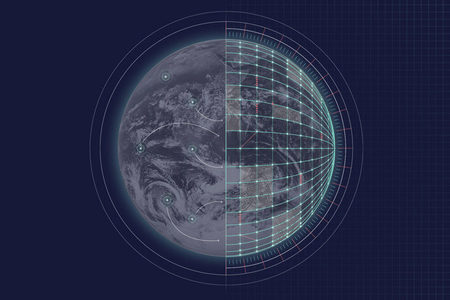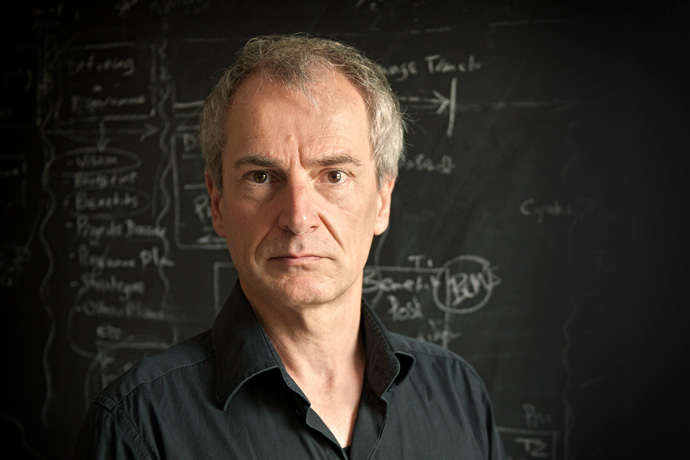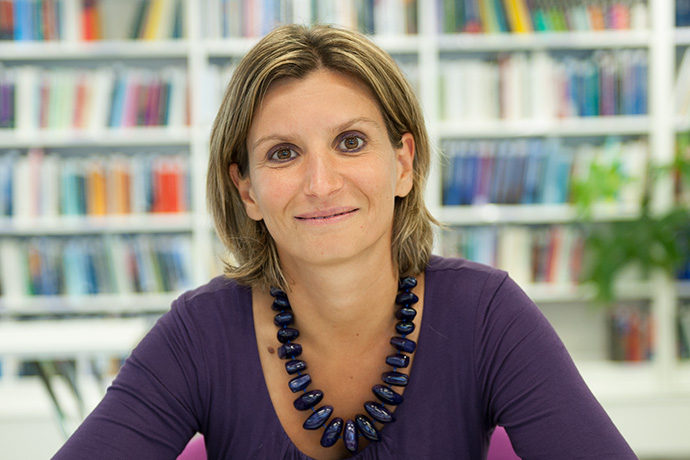

ECMWF has built up a team to work on digital twins of Earth as part of its contribution to the EU’s Destination Earth initiative. The new staff will work alongside existing ECMWF teams and with outside partners on developing these new capabilities.
The Director of Destination Earth (DestinE) at ECMWF, Peter Bauer, welcomed the result of the recruitment drive across many areas.
“We are very impressed by the extremely high level of recruited staff expertise across science, digital technology, management, administration and communication in such a short time after the initiative has started,” he said. “This will carry ECMWF's contribution to DestinE for years to come.”

Peter Bauer is the Director of DestinE at ECMWF.
The Centre has also accepted a bid led by the French national meteorological service, Météo-France, to develop the ‘on-demand’ component of one of the digital twins. This twin will enable the configurable and tailored impact assessment and prediction of weather-induced extremes at sub-kilometre scales.
ECMWF’s Director-General, Florence Rabier, welcomed the agreement with the French national meteorological service, Météo-France, and partners from 22 European countries.
“I am delighted that Météo-France and its partners have won this bid, which illustrates the close relationship between ECMWF and the national meteorological and hydrological services of our Member and Co-operating States,” she said.
Digital twin concept
Using an unprecedented number of observations, innovative Earth system models and cutting-edge computing, Destination Earth will develop several digital twins, or highly accurate replicas, of the Earth.
DestinE’s digital twins have three main characteristics: they will rely on better simulations based on more realistic models; they will develop better ways of combining observed and simulated information from the entire Earth system, namely the physical components and societal domains for food, water, energy and health management in support of action scenarios; and they will provide users with interactive and configurable access to data, models and workflows.
ECMWF will work with the European Space Agency (ESA) and the European Organisation for the Exploitation of Meteorological Satellites (EUMETSAT) to deliver DestinE’s vision. Efforts in DestinE will complement existing national and European services, such as those offered by national meteorological services and the EU's Copernicus programme.
Digital twin on extremes
Météo-France and its partners have won a tender to build the on-demand component of the weather-induced extremes digital twin. This on-demand component will rely on short-range predictions with a resolution between 500 and 750 metres, and even 200 metres depending on the extremes case and the situation. These capabilities will initially be limited to Europe.
It will “develop configurable and scalable workflows for the monitoring and short-range prediction of extremes and their impacts on society,” said Irina Sandu, the Science Lead for DestinE at ECMWF.

Irina Sandu is the Science Lead for DestinE at ECMWF.
ECMWF will deliver the global continuous component of this digital twin, which will focus on predictions of extremes a few days ahead, building on its Integrated Forecasting System. The first demonstration of the entire weather-induced extremes digital twin will be delivered by the end of the first phase of DestinE in April 2024.
Digital twin on climate change adaption
In addition, ECMWF is also responsible for delivering a digital twin on climate change adaptation. This digital twin will focus on multi-decadal timescales, supporting sustainable development and climate adaptation and mitigation scenarios.
The contract for this digital twin is currently under negotiation, and the winning bid will be announced shortly.
A multi-level partnership
In addition to the digital twin contracts, ECMWF has signed an agreement with the Italian supercomputing institution Cineca for the first phase of DestinE until 30 April 2024, which is expected to host some of the computationally extremely demanding simulations on the new pre-exascale machine called Leonardo.
The DestinE contract was signed in December 2021 and the initiative was officially launched in March 2022. ECMWF’s DestinE team will work from Bonn, Germany, and in collaboration with the partner entities ESA and EUMETSAT, but also other institutions across Europe, to develop a multi-level partnership programme.
For more information, see ECMWF’s role in DestinE. For an update on ECMWF's activities in Bonn, see Celebrating our first year in Bonn.
